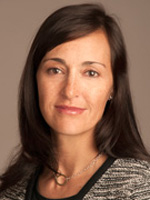Alternate Regional Directors
Amy de la Garza, MD, DFASAM
Alternate Regional Director, Region VIII
 Amy de la Garza, MD, DFASAM I am an addiction medicine physician who has been treating patients with SUD since starting my family medicine residency in 2010. In 2021 I completed an addiction medicine fellowship at the University of Utah while working simultaneously in my private practice. In 2022 I obtained board certification in Addiction Medicine.
Amy de la Garza, MD, DFASAM I am an addiction medicine physician who has been treating patients with SUD since starting my family medicine residency in 2010. In 2021 I completed an addiction medicine fellowship at the University of Utah while working simultaneously in my private practice. In 2022 I obtained board certification in Addiction Medicine.
Additionally, I hold a certification in functional medicine from the Institute for Functional Medicine. I have been caring for patients with behavioral health diagnoses and SUD in various capacities across the continuum of care. I have served as the medical director for residential and intensive outpatient treatment programs, served veterans with addiction in an outpatient setting, and as medical director for a clinical and research program investigating the application of psilocybin and ketamine to patients with major depression and opioid use disorder.
Throughout the years of obtaining these varied clinical experiences, I have had one constant, and that is my small business, Heron Wellness. I have been the sole practitioner since 2017, caring for patients and families who are struggling with SUD. I approach patient's healing from an integrative, holistic perspective that includes evidence-based allopathic medication management of SUD as well as broad spectrum primary care. In addition, patients and families come to me specifically because I address their disease process utilizing my functional background, providing education and guidance to help them address their nutrition, sleep, movement, stress management, and healthy connections using a group medical visit model in addition to individual care.
I have provided education to patients, providers and organizations about the importance of a lifestyle and an integrative approach to recovery throughout Utah, as well as in California and Idaho. In July of this year my colleague and I initiated an online lifestyle training program to rural addiction providers in my region through a Substance Abuse and Mental Health Services Administration grant. The intersection of lifestyle and functional medicine, family medicine, and addiction medicine is where my true passion is, and it brings me great joy to see my patients and their families work through their recovery journey utilizing this novel approach. My hope is to continue to educate and provide clinical consultation to providers and organizations across the country so that we might expand this approach to many.
I submitted and just received acceptance for a new ASAM Special Interest Group - Integrative Behavioral Health for Addiction this on September 12! I am thrilled to bring my passion for whole-person, integrated addiction medicine to ASAM and hope to build a community of shared interest to further clinical implementation and research for our patients.
